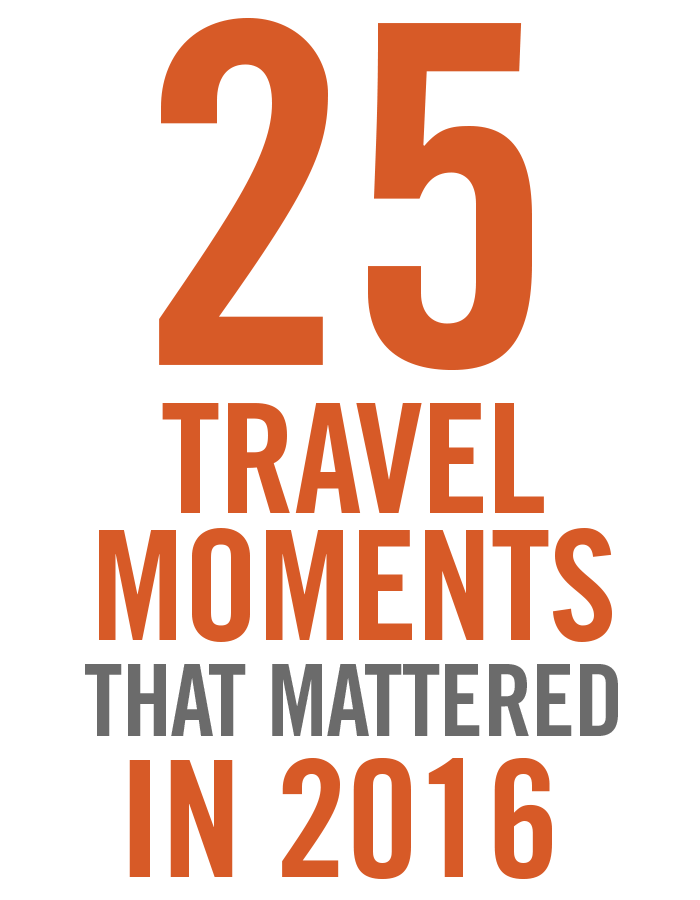
The stories that speak to where we are right now when it comes to the big business of global travel.
13 December 2016
Each year as we start pulling together our annual Megatrends forecast for the coming year we look back at everything that happened in the past twelve months that helped shaped the year we will soon leave behind.
And while we would hope that these stories are always fun — IPOs! New hotel products! Fantastic startup! — the headlines also must include events that had an adverse affect on travel: coups (fake or not), unrest, bankruptcies, and political choices we'll all soon regret.
As always, we want our readers to look beyond the headlines and towards the trendlines, which is why the stories here don't end when the next day's news arrives. They're indicative of bigger stories in the industry or have a ripple effect that touch other companies and sectors, and help point the way towards 2017.
— Jason Clampet, Editor-in-Chief
Winter
Bombings in Brussels and Istanbul Brought Modern Airport Security into Question

Police and soldiers from the Belgian Army stand in front of blown out windows at Zaventem Airport in Brussels. Photo: AP Photo/Yorick Jansens
In the years since the attacks of Sept. 11, 2001, Americans have grown accustomed to security routines and restrictions at airports. But two horrifying airport bombings in 2016 forced a closer look at the systems in place.
Suicide bombers struck in the departures hall at Brussels’ airport in March, killing more than a dozen people. In July, attackers with guns and bombs killed more than 40 at Istanbul’s Ataturk Airport.
The two cases forced authorities all over the world to examine their own airport security measures for lapses. In the United States, Congress responded by passing an aviation bill with additional security measures that included authorization of more Transportation Security Administration teams that stop and search travelers deemed suspicious in public areas outside security perimeters. The bill also made security clearance tougher for airport employees with certain levels of access, expanded random inspections of employees, and required reviews of security at airport perimeters.
Brussels Airport Attack Is Rare Breach in Aviation Security
Brussels Bombing Prompts Inclusion of More Security Measures in Aviation Bill
Bill to Boost Airport Security and Reduce Checkpoint Lines Passes U.S. House
Priceline Group CEO Stepped Down In Scandal

Darren Huston, former CEO of Priceline Group. Photo: Priceline Group
When Priceline Group CEO Darren Huston exited the company because of an improper personal relationship at the company, he had seemingly been on the top of his game. With the exception of its OpenTable acquisition in 2014, Priceline largely eschewed rival Expedia’s strategy of buying out a casting call of weaker rivals in favor of supercharged, organic growth.
Huston kept the Group’s meal ticket, Booking.com, focused on hotels although he began to build out the business-to-business side of the business in providing booking engines, websites, and revenue management tools for hoteliers. He insisted -- and it looks like the rest of the vacation rental industry is following him -- that vacation rental bookings had to be instantly confirmable like hotels.
The one hiccup during Huston’s tenure was overpaying for restaurant reservations platform OpenTable, which probably had more substantial technology problems than Huston knew of or publicized at the time. In November, the Priceline Group took a $941 million impairment charge related to OpenTable, meaning it wasn’t worth as much as Huston had surmised it would be.
Huston’s departure would have been more consequential had former CEO Jeffery Boyd, who was at the helm for the largest turnaround in Internet history and preceded Huston in the post, not been willing to step back in as Interim CEO. Eight months later, the Group, obviously in no rush, was still searching for a CEO and had not named a successor.
Verdict on Priceline CEO's Strategy Muddled by His Abrupt Ouster
Hilton Debuts Its ‘Stop Clicking Around’ Campaign, Setting a New Tone for Hotels

Image from Hilton Worldwide's advertising campaign encouraging consumers to book directly with the hotel brand, bypassing online travel agencies. Photo: Hilton
Hilton wasn’t the first or only major U.S. hotel company to launch a consumer campaign encouraging consumers to book direct, but it did so with the most aplomb (to a Rolling Stones soundtrack, no less), and its campaign to tell people to “stop clicking around,” continues, 10 months later.
Indeed, that campaign, the company’s largest ever, was, arguably, one of the biggest shots fired in the so-called direct booking wars. The battle between hotels and online travel agencies like Expedia and Priceline were a dominant theme throughout 2016 as hotels sought to reclaim their market share from third-party distribution channels.
What Hilton did with “Stop Clicking Around” wasn’t just about bringing more direct business to Hilton; it was about educating consumers as a whole, to teach them you don’t always get the lowest price by booking on an OTA.
“The purpose of the campaign started with that — to change the perception that was in the marketplace that the place to get the best price on any hotel was thru an OTA,” Geraldine Calpin, Hilton CMO told Skift. “We have 15 fabulous brands, but this wasn’t a branded campaign. It was about changing that misperception about where to get the best value and to introduce the new benefits for our loyalty members.”
Other hotel brands have joined Hilton, too, and it’s no longer uncommon to see member discounted rates for those loyalty members who book direct. And it’s a trend we think will continue for many years to come.
Hilton’s New Ad Campaign and The Push for More Direct Hotel Bookings
This Is How Hotels Could Win the Direct Booking Wars
Can Direct Booking Campaigns End Up With Both Sides Declaring Victory?
First Movers Land in Cuba, Others Scramble to Catch Up

Exterior of the Hotel Inglaterra in Havana, Cuba. The hotel will undergo renovations and open as part of Starwood's Luxury Collection. Rinaldo Wurglitsch/Flickr
This year was a pivotal one for American travel companies hoping to plant their flags in Cuba for the first time in more than 50 years. While we’d seen glimpses of the earliest first movers like Airbnb, for instance, making their debut in 2015, this year was when the biggest travel brands finally got their opportunity to expand to the island.
On the hotel side, Starwood was first, followed shortly thereafter by its now parent-company, Marriott International.
On the cruise side, Carnival’s soon-to-be-defunct Fathom cruise line was the first, to be followed by five other lines that include Royal Caribbean International, Azamara Club Cruises, Norwegian Cruise Line, Oceania Cruises, and Regent Seven Seas Cruises.
On the airline side, JetBlue was the pioneer, shortly followed by all the other U.S. airlines, including American, Delta, Spirit, United, Frontier, Alaska, and Silver Airways.
With the surge in American travel businesses headed to Cuba this year, that impact is already being felt and it’s clear that we’ve entered a period of change, not only for U.S. travelers, but for Cubans, too. The recent death, in November, of Fidel Castro is yet another milestone in the changing dynamics of U.S.-Cuba relations, too.
But for all the progress that’s already been made by the Obama administration, it’s also clear this détente is a tenuous one, as U.S. President-Elect Trump has already threatened to shut the door on Cuba. We’ll have to wait until 2017 to see if this progress can continue, or if it will be halted.
Spring
AccorHotels Moves Into the Sharing Economy with Onefinestay Acquisition

A onefinestay property in London. The upscale homesharing site was purchased by AccorHotels. Photo: onefinestay
Paris-based AccorHotels, led by CEO Sebastien Bazin, is one of the more exciting hotel companies to watch next year.
Aside from the fact that AccorHotels is buying or investing in almost everything, it’s also one of the few big hotel companies to have acquired a company that operates in the alternative accommodations space.
In April, the company announced it had purchased luxury short-term rental company onefinestay for about $168 million, after earlier announcing its investments in other short-term rental players Oasis and Squarebreak, too.
For the longest time, the hotel industry has largely ignored the onefinestays and Airbnbs of the world, but not anymore. They simply can’t afford to when Airbnb alone is valued at $30 billion, the equivalent of the newly combined Marriott and Starwood. AccorHotels, for one, isn’t content to sit on the sidelines.
What AccorHotels’ Entry Into the Sharing Economy Means for the Future of Hotels
Accor Acquires Onefinestay for $168 Million to Get Deeper Into Sharing Economy
AccorHotels CEO: It’s Foolish and Irresponsible to Fight Against the Sharing Economy
Obama Appears at SXSW, Elevating the Conversation around Events
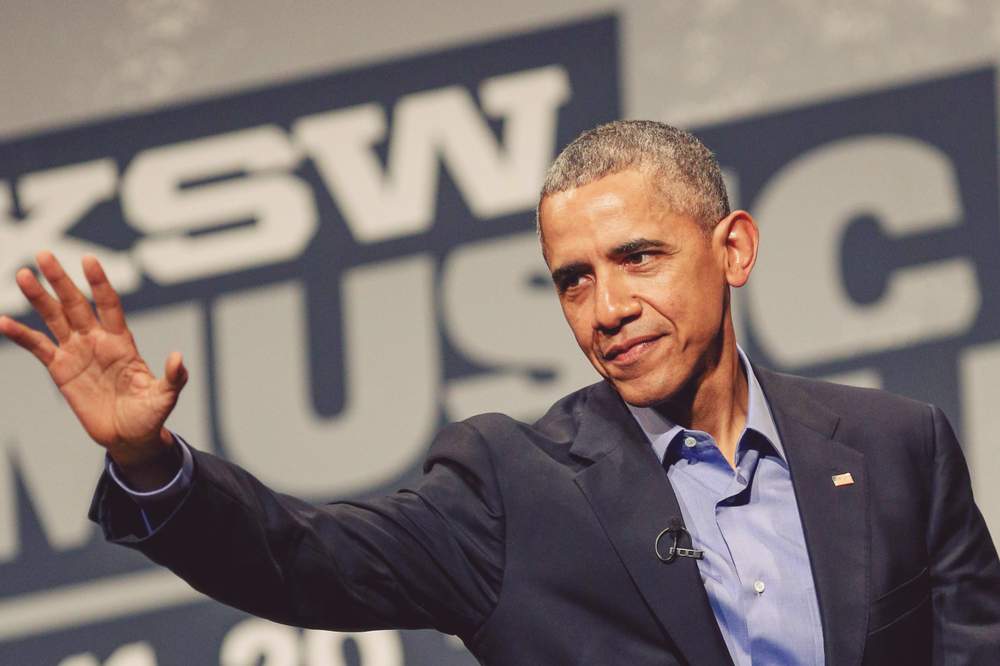
President Barack Obama speaks during the opening day of South By Southwest in Austin, Texas. Photo: Rich Fury/Invision/AP Photo
President Obama’s appearance at the 30th anniversary of South by Southwest (SXSW) in Austin in 2016 serves as a benchmark for how conferences and festivals can expand their impact well beyond their sector audience, by focusing on bigger macro themes around connectivity and innovation.
During his keynote interview, Obama challenged the tech community to develop better digital systems for engagement between government and private citizens. Stating that, “It’s easier to order a pizza than to vote,” Obama highlighted both the need for civic technology to catch up to the 21st century, and the challenges for poorer communities across America to access the internet.
SXSW started out as a music festival. Over time, it expanded into film and tech/media. Today, the event has evolved into a platform for global discussion about pressing social, economic, tech, and political issues, because it emphasizes the meaning behind the music, so to speak, as well as the film and tech/media programming.
Inspired by SXSW, more events are providing greater context around their content, and bringing a broader convergence of event participants together, to elevate their relevance on a larger global stage.
Destinations Promote Tourism and Tech Culture With Pop-Up ‘Houses’ at SXSW Austin
St. Louis Tries to Rebrand the City for Meetings With a New Music and Tech Festival
TEDx Illustrates How Conferences Are Shifting From Event to Media Platforms
Preventable Tech Failures Ground Delta and Southwest Flights En Masse
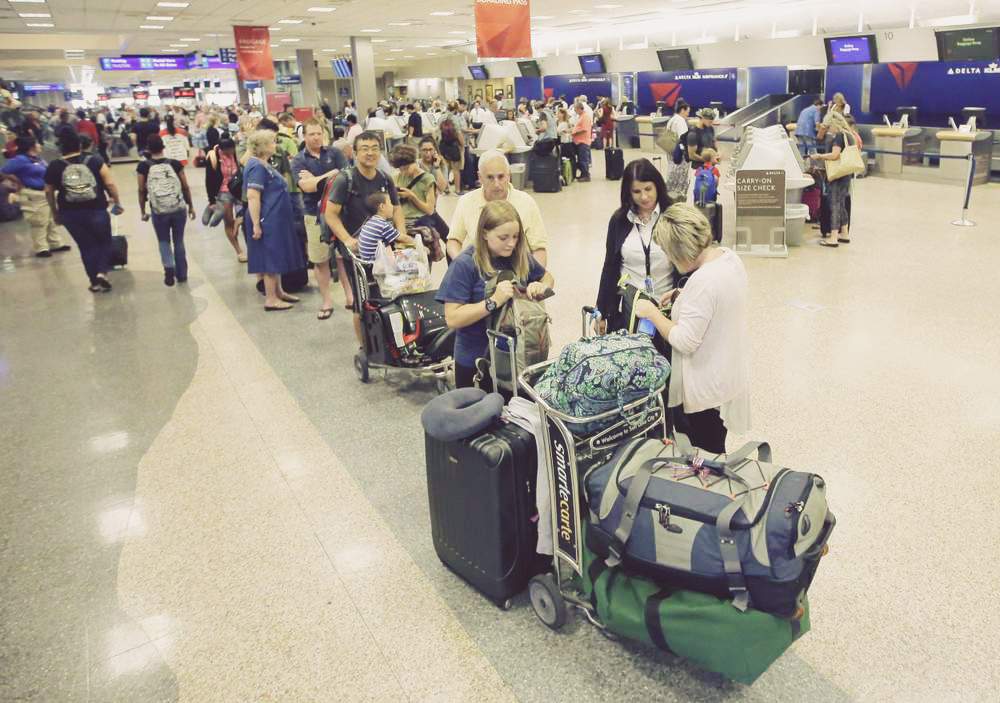
Delta passengers wait Tuesday at Salt Lake City International Airport. Technology failures at multiple airlines revealed legacy issues. Photo: Rick Bowmer/AP Photo
For more than a decade after 9/11, many U.S. airlines suffered heavy losses. They spent much of that time not investing in their businesses, but rather trying to make enough cash to stay solvent.
That meant some carriers did not invest as much as they should have in technology. And in 2016, that under-investment caused problems for two airlines — Southwest, which had a major outage in July, and Delta, which had a similar one in August.
It's likely that similar outages will occur at other airlines in the coming years. Airlines have remarkably complicated reservations systems, and though every carrier says it has a backup, most executives know their systems aren't immune to problems.
“I can tell you when some of the other airlines suffered outages, we weren’t laughing,” Hawaiian Airlines CEO Mark Dunkerly said in September. “We’re one circuit breaker away from having to deal with something similar.
The good news: Airlines are now making big profits, and they've realized they must invest in technology. After its outage, Delta said it was spending $150 million this year to improve its systems.
This is Why Airline IT Systems Break Down So Often
Two U.S. Senators Want to Know Why Airline IT Fails so Often
Delta Identifies Fire and Disconnected Servers as Cause of System Failure
Facebook Kicks off Dynamic Travel Ads

Facebook's Dynamic Ads for Travel product was the outcome of research on how the platform's users shopped for travel across the web. Photo: Facebook
Travelers likely noticed many more ads from travel brands throughout their Facebook and Instagram feeds this year as the platform rolled out Dynamic Ads for travel in June.
Dynamic Ads for Travel is Facebook’s first ads product designed for a specific vertical and the company has said that it plans to focus on travel in the years ahead. These ads are designed for travel brands seeking to display images of destinations in their ads and help with retargeting travelers based on their browsing history and interests. The move makes it clear that Facebook wants to become a stronger player for driving trip inspiration and travel bookings — particularly direct bookings.
Dynamic Ads can also include video and Facebook said it serves more than 100 million hours of mobile video every day. From that, travel brands have seen an opportunity to create compelling video content that naturally fits into newsfeeds without appearing gimmicky.
Summer
The Pro-Brexit Vote Throws UK Tourism Into Flux

A protest march June 28, 2016 from Trafalgar Square to Parliament in the UK following the Brexit vote. Photo: Sam Greenhalgh/Flickr
Hardly anyone saw the Brexit vote coming. Most observers believed that the British public would ultimately reject the uncertainty of leaving the European Union despite polls in the run-up suggesting a close race. The shock defeat for the establishment plunged the country into turmoil.
The Prime Minister David Cameron resigned and was eventually replaced by fellow Conservative MP Theresa May but almost as worrying was the collapse in the value of the pound. While the fall against currencies such as the dollar and euro has made the UK more attractive to foreign visitors, it has also made it more expensive for sun-loving Brits to go abroad.
Many travel companies have yet to see a drop-off in bookings for next summer but there are predictions that so-called staycations will grow in popularity. Whatever the result, the repercussions of the Brexit vote will continue to be felt across the whole of Europe over the next few years.
What the Brexit Vote Means for the Global Tourism Industry
Ryanair Boss Explains Just Why Brexit Will Be So Difficult
The UK’s Brexit Strategy Should Terrify the Travel Industry (But It Doesn’t)
Short-Lived Pokemon Craze Gives Travel Industry Real Glimpse at Augmented Reality

Pokemon Go players in South Korea. The AR game brought smartphone users to landmarks and destinations around the world. Lee Jong-hun/AP Photo
As travelers had to catch them all, travel brands watched how last summer’s Pokemon Go global gaming sensation give birth to a new dimension of marketing.
Pokémon Go, which launched at the beginning of July, was the most popular mobile gaming platform ever in U.S. history and at one point had more daily active users than Twitter. The goal of the game is to catch digital gremlins (Pokémon) in the Google Maps-based app at specific places around a city (PokéStops) and compete with other gamers.
Some U.S. tourism boards such as Travel Portland and Visit Anaheim quickly launched resources geared towards Pokemon Go players and saw web traffic surge as a result. But it was real-world efforts that translated into food traffic. The British Museum, for instance, had a PokeStop in its iconic Parthenon exhibit, and many smaller institutions that previously had a hard time appealing to a younger demographic saw visitors surge in pursuit of digital glory. These examples alone demonstrate the potential gain for brands embedding content in new gaming and mobile technology, and finally, after so many years of failed efforts, show the potential promise of augmented reality for the industry.
The Smart Tourism Groups Already Leveraging the Pokémon Craze
U.S. Legacy Airlines Create Bargain Fares to Compete With Ultra Low-Cost Carriers
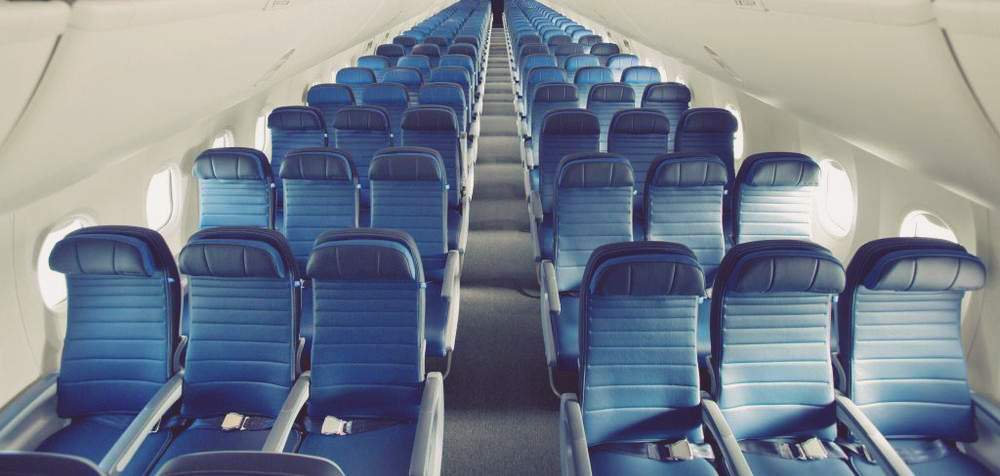
United Airlines' Economy Plus and Economy seats. The airline, along with Delta and American Air are selling no-frills tickets to compete with ultra low-cost carriers. Photo: United Airlines
The market has spoken.
It has been a decade since Spirit Airlines changed models, becoming the first ultra low-cost carrier in the United States. That means Spirit, while charging low fares, assess fees for nearly everything, from carry-on bags to Cokes.
For years, American, Delta, Southwest and United let Spirit grow. The big airlines may have calculated that Spirit carried a different type of traveler, one more cost-conscious than a legacy airline passenger.
Business travelers still tend to prefer full-service airlines. But people who fly once or twice a year have been defecting to Spirit, and the two other airlines with similar models — Frontier and Allegiant.
Now, American, Delta and United are all tweaking their pricing structures to better compete for those occasional travelers. Delta has had a barebones fare for four years — it comes without advanced seat assignments and other extras — and it spent much of 2016 rolling it out in new markets. In late 2016, United announced its own similar fare, and passengers who buy it will not even be able to stuff big bags in the overhead bins. American is planning to implement a similar fare in 2017.
United’s New No-Frills Fare Won’t Even Include Free Carry-ons
Delta to Expand Basic Economy Fares That Generated $20 Million in Extra Revenue
American Airlines Reveals More Details About Its Basic Economy Fares
Disney Grew its Global Presence with a Giant New Park in Shanghai

Visitors at Shanghai Disneyland. Photo: Chloe Rice/Walt Disney World Resorts
After nearly 20 years of planning, Mickey Mouse moved into mainland China and quickly started making room for his friends.
The new $5.5 billion Shanghai Disney Resort hadn’t been open long before breaking ground for an expansion, a move that showed The Walt Disney Company’s ambitions — and its confidence.
Shanghai Disneyland drew 4 million visitors in its first four months after opening in June and is expected to nearly break even in year one. The new addition, a Toy Story-themed land, will open in 2018.
But Disney doesn’t just see potential for its theme park business in China. Experts expect the company’s physical presence to lead to lifelong loyalty for Disney’s television, film, and consumer products empire.
As Walt Disney Co. chairman and CEO Robert Iger told CNBC: “It clearly will serve as sort of a booster rocket for people’s appreciation for Disney.”
What’s at Stake as Shanghai Disney Brings the Magic to Mainland China
Shanghai Disney Is More Popular Than Expected, But the CEO Stays Mum on Numbers
Disney’s Theme Park Plans Include Creative Pricing, Hotels and Movie Characters
Coup in Turkey Kills Growing Tourism Market

A police officer secures the area after a January explosion near the Ottoman-era Sultanahmet mosque. This attack was followed by others, as well as a possible coup attempt in July. Photo: Kamal Aslan/Reuters
For years Turkey was the low-cost destination that European tourists could rely on for their two weeks of sun and sea during the summer. Its popularity had prompted tour operators and travel agent to fill their programs with packages to places like Antalya and Bodrum.
What has happened to the country over the last 12 months has been disastrous. Hundreds of people have been killed by terrorist attacks, including German tourists in a suicide bombing in January. Further damage was done in July when a faction within the Turkish armed forces attempted to overthrow the government of President Recep Tayyip Erdogan. The coup was unsuccessful and led to a crackdown on suspected enemies.
This cocktail of terrorism and political instability has meant that many holiday makers have stayed away with foreign arrivals down 31 percent for the first 10 months of the year. In order to bounce back the country will have to persuade tourists that it is a safe place to visit.
Turkey Gets a Much Needed Tourism Boost From Returning Russians
Turkey’s Tourism Revival Under Threat From Coup Attempt and Response
Turkey Had a Terrible Year for Tourism and Signs of Recovery Are Elusive
Uber Sells China Business to Didi

Women holding their smartphones show the ride-hailing apps Uber Technology Ltd., left, and Didi Chuxing. Photo: Andy Wong/AP Photo
When you can’t beat them, join them. Or in Uber’s case in China — sell to them. In August Didi Chuxing, Uber’s largest competitor in China, announced it would take over Uber China and operate it as a separate brand.
As part of the deal, Uber received a 20 percent stake in Didi Chuxing which makes it Didi’s biggest shareholder. Uber founder Travis Kalanick also joined the Chinese company’s board while Didi Chuxing founder Cheng Wei joined the Uber board. Kalanick said in February that Uber was losing $1 billion a year in China.
Didi was formed by the February 2015 merger of competing ride-hailing services launched by Chinese Internet giants Tencent Holdings Ltd. and Alibaba Group. It operates in 400 Chinese cities and completed some 1.4 billion rides in 2015. Before the sale, Didi and U.S. ride-hailing company Lyft joined forces in April against Uber that allowed users of each app to use the other app when traveling in the U.S. or China. The deal stopped the losses for Uber, but time will show how much it limits its growth.
Uber Sells China Business to Rival Didi
China’s Didi Kuaidi and Lyft Join Forces in U.S. to Take on Uber
Uber’s China Rival Didi Kuaidi is Raising $2 Billion in Funding
The Marriott-Starwood Deal Finally Closes

A chart outlining Marriott International's 30 brands following the conclusion of its purchase of Starwood Hotels and Resorts.
What a deal this was, the likes of which we doubt we’ll see again anytime soon.
When Marriott first announced it would purchase Starwood Hotels back in November 2015, we thought it’d be a textbook merger, albeit a significant one — one that would ultimately create the world’s largest hotel company with 30 brands and nearly 6,000 hotels around the globe.
The end result was, more or less expected, but what followed in 2016 was anything but textbook. In March, a bidding war ensued between Marriott and Anbang, a Chinese insurance group whose earlier claim to fame was buying the historic Waldorf-Astoria in New York for nearly $2 billion.
Thanks to Anbang’s intervention, Marriott ultimately wound up paying a billion dollars more to acquire Starwood when the deal finally closed in late September. We’re sure the moment couldn’t have come any sooner for Marriott.
Marriott buying Starwood wasn’t the only hospitality merger or acquisition to close this year, either: Accor bought Fairmont, Raffles, and Swissotel, HNA Group bought Carlson, and SBE finally (finally!) bought Morgans Hotel Group. But in terms of its scope, in terms of the scale involved, and in terms of the sheer drama of it all, it was certainly the biggest, and one we won’t soon forget.
Fall
Samsung Galaxy Note Phones Spontaneously Combust, Terrifying Airlines
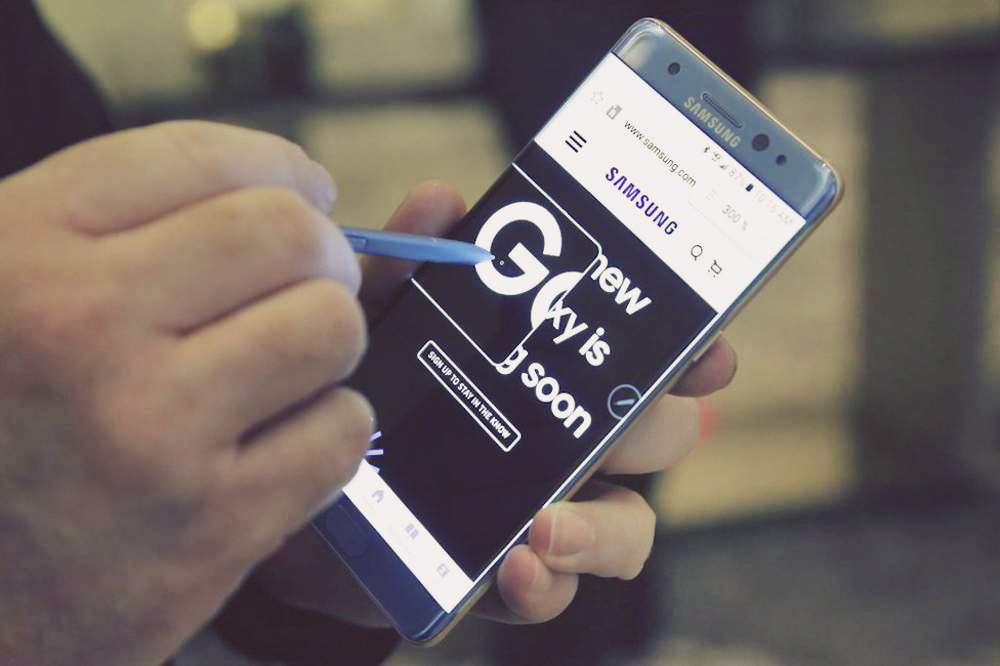
The U.S. banned all Galaxy Note 7s from airliners fearing the phones may catch fire. Photo: Richard Drew/AP Photo
Is there a worse place for a fire than an airplane cabin?
Probably not, which is why the Federal Aviation Administration took the highly unusual step in October of banning the Samsung Galaxy Note7 from all U.S. passenger airliners. The last straw? That probably happened, just days before, on Oct. 5, when a passenger's Note7 started popping and smoking before a Southwest flight from Louisville to Baltimore. The phone overheated, according to investigators.
Other regulatory authorities followed the FAA's lead, and before long, the Note7 was effectively banned from all airlines, anywhere in the world. Passengers cannot even bring the phones on board if they promised to turn them off.
For passengers, the pre-flight warnings at the gate and onboard provided a temporary change of pace from the usual flight instructions, as well the wrong kind of marketing for Samsung.
FAA Bans Samsung Galaxy Note 7 From All Airplanes, Threatening Criminal Charges for Non-Compliance
U.S. Airlines Tell Passengers to Turn Off Samsung Galaxy Note 7 Phones
FAA Issues Warning to Samsung Galaxy Note Users: Don’t Turn on Your Phones
Priceline Kills Name Your Own Price for Flights

William Shatner starred for years as Priceline's "Negotiator." He may not be gone from ads, but Priceline's groundbreaking "name your own price" feature is. Photo: Priceline
Priceline.com downplayed Name Your Own Price four years ago as big thumbs and small screens on mobile phones made the relatively cumbersome bidding process anachronistic. In September, it killed outright Name Your Own Price for flights and the days are probably numbered for the service in hotels and car rentals, too.
The demise of flight-bidding on Priceline.com marks the end of an era as this was the company’s original product when it debuted in 1997 — much to the horror of many airlines, which were highly skeptical about online travel. Priceline.com still sells flights in the standard way and the whole sector, which saw airlines eliminate or greatly curtail commissions, was overtaken by the more lucrative hotel business.
There doesn’t seem to be too much reason to keep Name Your Own Price going for hotels these days, either. Priceline.com tells consumers they can get deals for up to 60 percent savings using Name Your Own Price and likewise deals are waiting at up to 60 percent off for its Express Deals service, which requires no bidding.
While bidding seems to be dying, though, flight sales continue to drive travel planning in many ways and a bevy of sites, from Expedia to Skyscanner and CheapOair, seem to be making a living off flights. The fares, though, aren’t bargaining fodder as they were in the old days.
Priceline Kills Name Your Own Price for Flights
Expedia Is Stealing Market Share from Priceline’s Name Your Own Price Through Steep Discounts
A Supermodel, a Tiny Dog and How Priceline Turned William Shatner Into a Legendary Pitchman
National African American Museum Opens in Washington D.C., Leading a Wave of Civil Rights Tourism

Rendering of the National Museum of African American History and Culture, which opened in Washington, D.C. this year. Photo: Smithsonian Institute
America’s only national museum devoted to black history opened at a historic time — during the nation’s first black presidency, amid violent debate over police brutality, mass incarceration, and renewed white nationalism. The $540 million-dollar National Museum of African American History and Culture is a hit — timed tickets are booked solid through spring 2017 and reviews have raved about the design, restaurant, and visitor experience.
It’s the crown jewel in a new landscape of civil rights tourism. Blockbuster museums have cropped up recently across the South, with more to come, others receiving multimillion-dollar renovations. They’re proving to be beautiful landmarks that draw visitors and their spending dollars, like Atlanta’s museum, which sits on land donated by Coca-Cola and is well integrated into the city’s network of attractions.
Marketers and urban planners are just realizing that civil rights is a tourism asset — a crucial part of a place’s identity, like jazz in New Orleans or antebellum architecture in Charleston. Washington’s new museum sets the bar high.
New Chase Sapphire Reserve Card Gives Life to Points Geeks
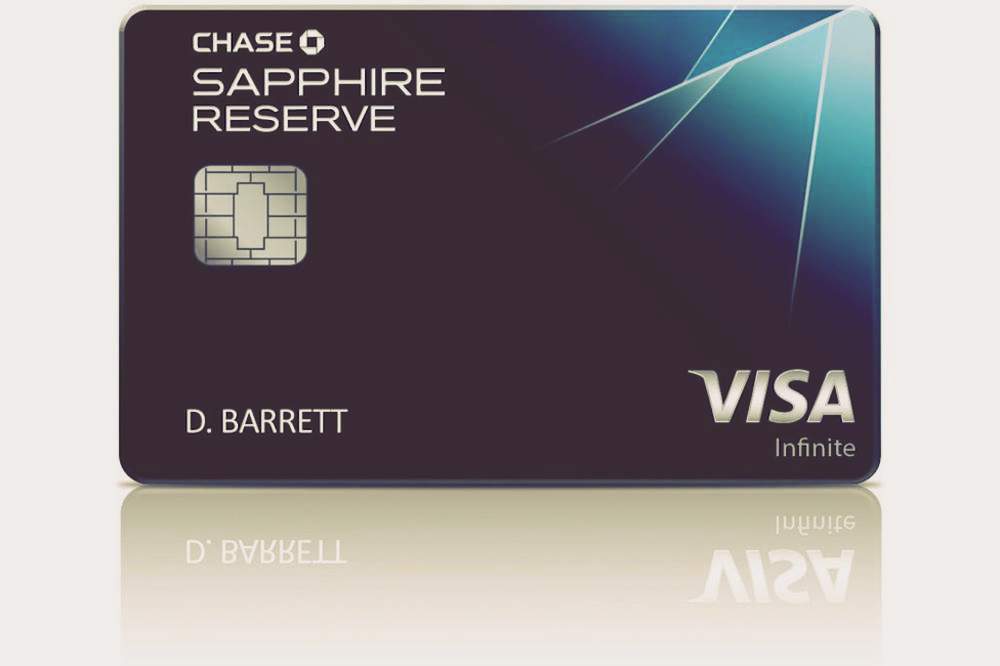
Credit card points collecting is being reinvented as airlines and hotels rethink loyalty. Chase's new offering has set the bar high for all points credit cards. Photo: Chase
The buzz was akin to the release of a new Star Wars film or Apple product. For months certain corners of the Internet were full of speculation that JPMorgan Chase was preparing to unveil a new credit card. In August the company finally released the Chase Sapphire Reserve and it immediately became a hit.
Remarkably the hype was generated not by advertising but by the message boards and blogs that have become incredibly successful on the back of airline and hotel rewards programs. The card commands an annual fee of $450 but savvy consumers can make that back with a formula of 3x points bonus for travel and dining as well as a hefty sign-up bonus of 100,000 points. The total package has made it more attractive than offerings from rivals such as American Express and Citi.
But how long will it last? The metal used to make the card is more expensive than plastic and at the end of last year/earlier this month JPMorgan Chase’s CEO said the card would lower company profits by between $200 and $300 million.
Travel-Focused Consumers Win in Amex and Chase’s Battle for Credit Card Supremacy
How Chase Made the Perfect High for Credit Card Junkies
JPMorgan is taking a $200 million hit after its new credit card went overboard with the rewards
Donald Trump Has a Reservation at the White House
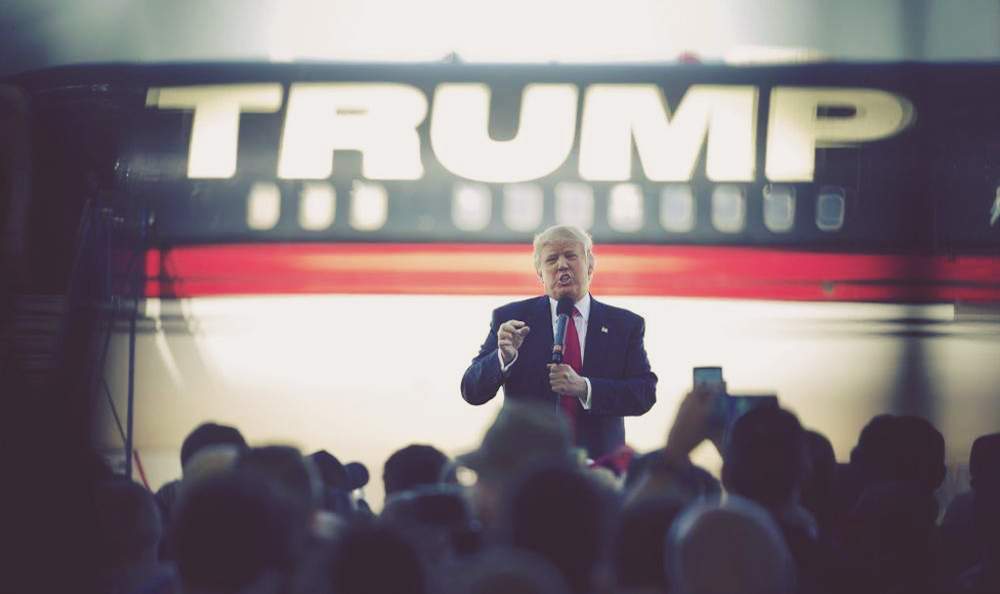
President-elect Donald Trump stands in front of his airplane as he speaks during a rally in Bentonville, Ark. Photo: John Bazemore/AP Photo
Donald Trump, the hotelier, failed airline operator, reality TV star, real estate investor and Democrat-turned Republican candidate, won the U.S. presidency and will board (presumably, at least some of the time) at the White House — less than a mile from Trump International Hotel Washington, D.C.
What it means for the travel industry — and the world — is almost as tough as was picking Trump over Hillary Clinton as the victor because consistency in policy positions has not been Trump’s strong suit, to say the least.
We can expect that tightening immigration, which on the employment front might adversely impact the startup world and hotels looking for cheap labor, for example, will be a priority, and clashes with countries such as China over trade policies could have a chilling impact on international visitors.
But, you never know: Prognostications about stock markets around the world crashing under the weight of a Trump victory haven’t happened, and some have trended the opposite way.
Under the Trump administration, look for more privatization in areas ranging from the Transportation Security Administration to air traffic control. U.S. travel to Cuba could be a casualty of the election results and nativist pleas like those from Delta, American, and United to limit the expansion of Gulf carriers in the U.S. will find a much more friendly reception under Trump’s “America first” framework.
President Trump: The Travel Industry Reacts With Caution, Not Enthusiasm
President-Elect Trump Picks a Retired Marine to Manage U.S. Borders and the TSA
U.S. Airlines Set to Lose Major Battle Against Gulf Carriers in Open Skies Debate
Airbnb Launches Trips

Airbnb CEO Brian Chesky on stage at the company's Open event to announce the launch of its Trips product. Photo: Airbnb
When Airbnb said it wanted its users to feel like they really “live there” in April of this year, it made that a reality when the company announced its largest product launch to date in November: Trips.
Beyond marking Airbnb’s official, formal foray into the world of tours and activities, this announcement was a signal that Airbnb isn’t just a home sharing marketplace: it’s a mature “super-brand of travel,” as CEO Brian Chesky and Airbnb Global Head of Hospitality and Strategy Chip Conley have said.
In addition to launching Airbnb Trips, the company also launched Places, expanding on its ability to offer in-destination services. It also hinted at the possibility of adding flight and services to its mobile app, so that, eventually, it’s conceivable you could book and experience your entire trip via Airbnb.
The evolution of Airbnb into what it is today has been eight years in the making and in that time, the company has grown by leaps and bounds, with a recent valuation of $30 billion and more than 100 million users in 191 countries and counting around the world.
And as the company continues to evolve, it’s also experiencing some growing pains, as to be expected: challenges involving regulations, managing scale and quality control, battling discrimination on its platform, and learning how to run a tours and activities business, too. Whatever roadblocks or detours lie ahead, however, one thing is clear: Airbnb is no longer just a place where you stay anymore.
Airbnb Launches Trips, Its Big Tours and Activities Gamble
This Is Why Airbnb Is Doing What It’s Doing With Trips and More
Airbnb Is Betting Big on Its New Trips Product, But Can It Really Deliver?
Carnival Tested a New Type of Cruise Line. It Didn’t Work Out.
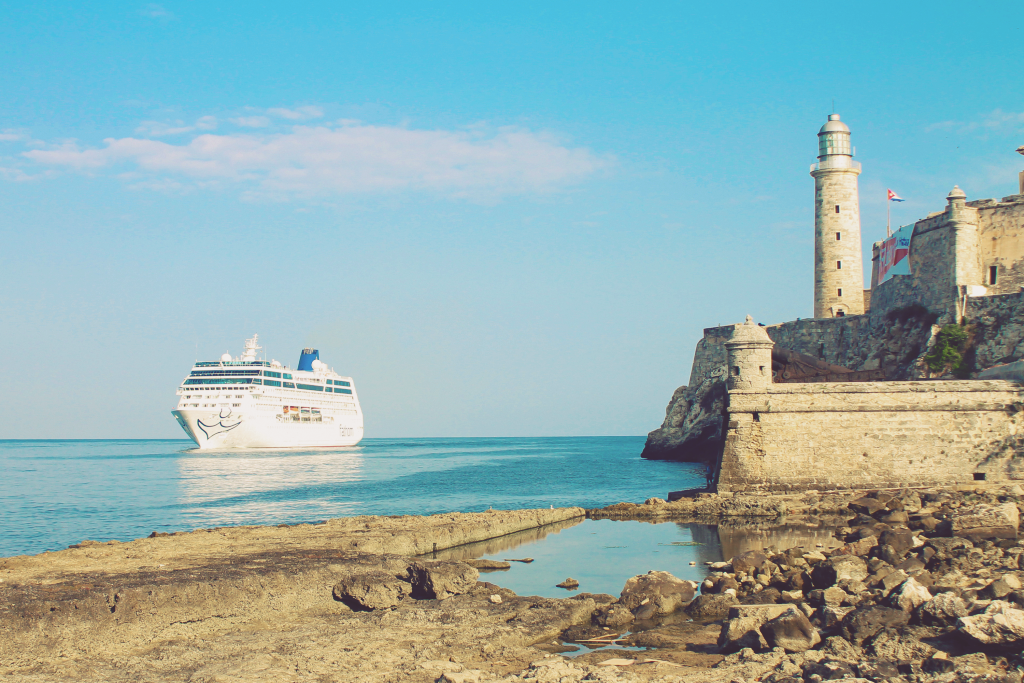
The Fathom ship Adonia arrives in Cuba. Photo: Fathom
When Carnival Corp. first introduced its new social-impact cruise line Fathom, the concept sounded like a win all around: The company would tap into a new customer base, earn glowing headlines for its benevolent ways, and repurpose an old ship for better returns.
The reality turned out to be more complicated, in part because no one had encountered a cruise company with goals loftier than helping people vacation.
Fathom started sailing with its single ship in April, alternating between purpose-driven cruises to the Dominican Republic and culture-focused voyages to Cuba. It was the first cruise line in decades to get permission to sail from the U.S. to Cuba, and those sailings were popular.
But the purely social impact cruise proved a tougher sell. In November, Carnival announced that Fathom the cruise line would be no more as of June 2017. Fathom the brand will live on in a new form: as an optional experience for passengers on other Carnival-owned lines who want a regular cruise with some social impact mixed in.
The Full Story:
Carnival Corp. Is Pulling the Plug on Its New Cruise Line Fathom
Fathom Is Expanding Its Volunteer Activities to Other Carnival Lines
Fathom Is Still Trying to Explain the Meaning of a Social Impact Cruise
Alaska Air and Virgin America Merge
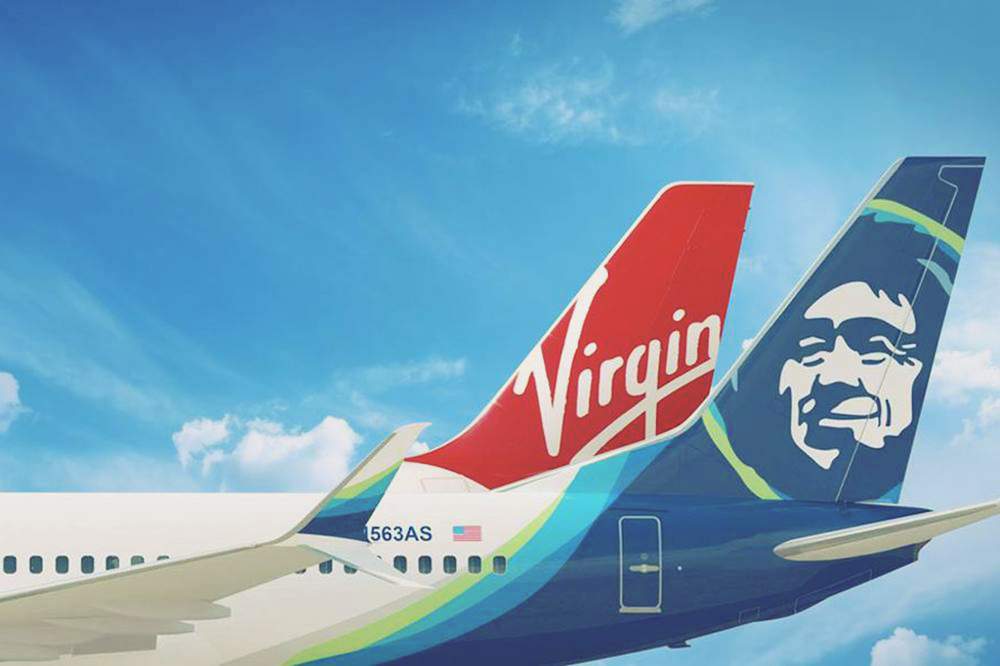
Alaska Air and Virgin America will soon be one company, but the fate of the two brands is still undetermined. Photo: Alaska Air
Alaska Airlines is among the most consistently profitable U.S. carriers, but it far from the coolest. Its planes have no mood lighting, and its flight attendants wear staid, boring uniforms. Plus, its aircraft have neither seat-back entertainment nor speedy Wi-Fi.
But in 2016, Alaska took a step toward the future, buying Virgin America for $2.6 billion. The acquisition will not automatically make Alaska cool — the combined entity will retain many of Alaska's products and most of its service culture — but it will make the it more competitive with America's largest four airlines.
Scale is a big deal in the new airline world, with United, American, Delta and Southwest controlling the vast majority of domestic market share. The new Alaska will be the fifth-largest carrier, and though it will remain considerably smaller than its competitors, the larger company should have enough pricing power to improve its fortunes. That should be especially true along the West Coast, where both Alaska and Virgin America have been strong, and on transcontinental flights. Alaska has historically had few of those, but Virgin America has built a strong franchise between California and the East Coast.
To be sure, there are concerns. Alaska was forced to outbid JetBlue, and it paid a $57 per share, a 47 percent premium over where Virgin America's stock traded before the deal announcement. At that price, Alaska will have to be smart about how it uses Virgin America's assets to ensure the deal makes sense.
DOJ Clears Alaska’s Acquisition of Virgin America
Alaska Airlines Still Plays It Coy About Fate of Virgin America Brand
Alaska Airlines Doesn’t Want to Drive Away Virgin America’s Happy Customers
Ctrip $1.7 Billion Acquisition of Skyscanner Shocked the World

Ctrip CEO Jane Sun was named to the top position shortly before the booking giant acquired Skyscanner. Photo: Ctrip
Ctrip’s acquisition of Skyscanner was a transaction heard ‘round the world.
Ctrip’s surprise buy of Scotland-based flight metasearcher Skyscanner in November was interesting in its own right but it has even more import for what it says about the emergence of China, already the largest business travel market on the planet, as a travel power and difference maker.
China’s Ctrip is already the globe’s second largest online travel agency by market cap (around $22 billion) and its Skyscanner buy will bolster that substantial girth and open new points of sale. After years of Kayak’s CEO disparaging Skyscanner for its lack of size and profits, Skyscanner will have a powerful benefactor to get even.
Expedia and TripAdvisor are among the U.S. companies that basically tried China and then left while the Priceline Group partnered with Ctrip, which has feasted on everything in sight, including rivals Qunar and eLong.
But mostly the deal shows how the balance of power in online travel is shifting from North America to Asia and that the travel powers that be in China will have an increasing say in the evolution of the travel industry.
Exclusive: Ctrip CEO on How It Moved In to Buy Skyscanner
Interview: Skyscanner’s CEO on the Ctrip Acquisition and the Future of Metasearch
Exclusive: Ctrip CEO on Global Ambitions, Skyscanner Buy and the Priceline Relationship
Trivago Journeys From TV to Nasdaq

One of Trivago's many "Trivago Guys" used in its pervasive television advertising. Photo: Trivago
Get ready for the next big and impactful travel company, Germany-based Trivago, which is hoping to debut on Nasdaq for its initial public offering and is growing like a weed, 59 percent in 2015.
Majority-owned by Expedia Inc., hotel-searcher Trivago took a tack almost opposite from Booking.com to get where it is today, emphasizing TV advertising over digital marketing, although it does plenty of the latter, too. Trivago intends to use the net proceeds of its IPO to do more such TV advertising and to make its brand more of a household name in more countries beyond its core European markets.
Lessons from the journey so far? Companies can get there without such dependence on Google but the top line has to be enormous to have the euros and hubris to redirect it all back into marketing. Trivago spends about 88 percent of revenue on advertising in a bid to get consumers to come directly to its sites.
And despite all the talk that rate parity, which is under fire in Europe, meant that metasearch, or price comparison sites, would fade faster than old soldiers like General Douglas MacArthur, Trivago’s IPO, if successful, would mean that there is plenty of appetite for sites that help consumers find rock-bottom deals that feature rooms $6 cheaper than the hotel across the street.
Credits
Edit
Jason Clampet
Dennis Schaal
Deanna Ting
Brian Sumers
Patrick Whyte
Greg Oates
Hannah Sampson
Daniel Peltier
Andrew Sheivachman
Sarah Enelow
Development
Mike Linden
Rachel Bronstein
Design
Ping Chan
About Skift
Skift is the largest industry intelligence platform providing media, insights, and marketing to key sectors of travel. Skift deciphers and defines global travel trends for the marketers, strategists, and technologists in the global travel industry. We do this in a multitude of ways:
SKIFT.COM: Daily news and insights
Skift.com is the daily homepage of the travel industry. Through original reporting and analysis, it’s the leading source of intelligence for the industry and its watchers.
SKIFT NEWSLETTERS: Inbox intelligence
Daily and weekly updates on the news the travel industry needs to do its job. In addition to daily emails, we also have sector-specific weekly emails devoted to:
• Corporate Travel
• Meetings and Conventions
• Food & Technology
• Business Travelers
TRENDS RESEARCH: Bi-monthly deep industry dives
Skift Trends Research is aimed at the strategists, marketers and technologists in travel, providing the latest intelligence on travel trends.
SKIFT GLOBAL FORUM: Thought-leadership event
Our Global Forum is a creative business forum, with carefully curated topics and speakers to inspire the professionals in travel about the business and creative promise of the sector.
SKIFT X: Branded content studio
Skift’s in-house content studio redefines the way the travel industry approaches marketing through creative storytelling.
SKIFT PODCAST: Conversations with leaders
Our twice-monthly podcasts bring leaders and experts into our studio to discuss emerging trends and compelling industry developments.

